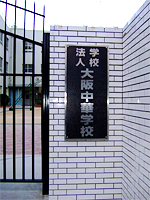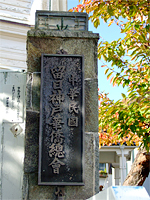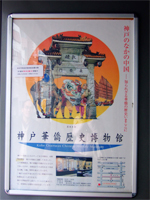政治・安全保障領域
人材育成:支援スキーム:調査研究支援スキーム(学生)
HAN Pei-Chun(韓 沛君) / 調査地域: Osaka, Kobe, Kyoto and Nagoya
2008.11.15
渡航地(国・都市名)
リサーチ目的
研究課題
An Empirical Study on Taiwanese Diaspora in Contemporary Japan
This research project examines cultural identity and the related discourses of one particular immigrant group, the first-generation Taiwanese Diaspora, in contemporary Japan. This group of overseas ethnic Chinese came to Japan from Taiwan after the end of WWII. They have experienced complex transitions in both legal status and self-identification. Constituted from the legacies of Japanese colonialism and Chinese nationalism, the Taiwanese Diaspora constantly negotiate, reconstruct and redefine their identity of “neither here, nor there” perplexity. This distinctive feature of identity predicament represents a unique case within the population of overseas ethnic Chinese.
成果
This study focuses on the first generation overseas Chinese. I collected data from 20 questionnaire respondents and conducted in-depth interviews with 10 informants in the areas of Osaka, Kobe, Kyoto, and Nagoya. Through the questionnaires, I acquired the basic data of my focus group members, such as their genders, years of immigration, education levels and employment backgrounds, etc. Face-to-face interviews with 10 individuals were conducted after the survey. The approach of this survey was snowballing through paper distributions, mail and E-mail circulations. The sources of informants were mainly from local branches of the Overseas Chinese Association of Japan (日本中華聨合総会). The brief itinerary of survey is summarized as follows:
- 11/15―11/18: I visited two organizations, which are Osaka Chinese Association (大阪中華総会) and Osaka Chinese School (大阪中華学校), during this period. I interviewed three informants, who are the director and trustee of the Osaka Chinese Overseas Association, and the president of Osaka Chinese School.
- 11/18―11/21: I visited two institutes, which are Kobe Chinese Overseas Association (神戸華僑総会), Kobe Overseas Chinese History Museum (神戸華僑歴史博物館) and Sun Yat-sen Memorial Hall (孫文記念館). I interviewed three informants, who are the chairman, director, and a member of the Kobe Chinese Overseas Association. I also collected data for literature review from the Chinese Overseas History Museum.
- 11/21―11/23: I visited Kyoto Chinese Overseas Association (京都華僑総会) and interviewed three informants, who are the trustee and members of the Kyoto Chinese Overseas Association.
- 11/23―11/25: I visited Nagoya Chinese Overseas Association (名古屋華僑総会) and interviewed one informant, the director of the Nagoya Chinese Overseas Association.
According to the life narratives of those 10 informants, this research trip helps me reconfirm two of my previous findings. First, similar to the informants in Tokyo metropolitan area examined, the cultural identity of Taiwanese migrants in other areas are not bound coherently, but are subject to modification in accordance with cultural practices and social contexts. Second, while Taiwanese Diaspora assimilates to Japanese society setting through inter-ethnic interactions, their Chinese consciousness serves to facilitate networking in intra-ethnic interactions. However, different from the cases in Tokyo metropolitan area, some distinctiveness of locality was also reflected in the interviews. The informants in Osaka and Kobe explicitly addressed their political ideologies as their cultural identities and claimed their primordial attachment to the land of origin. Many of them have been actively devoted to political movements in favor of their political commitments.


